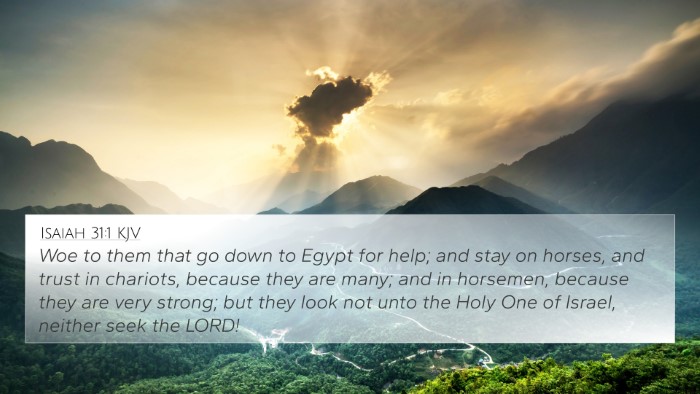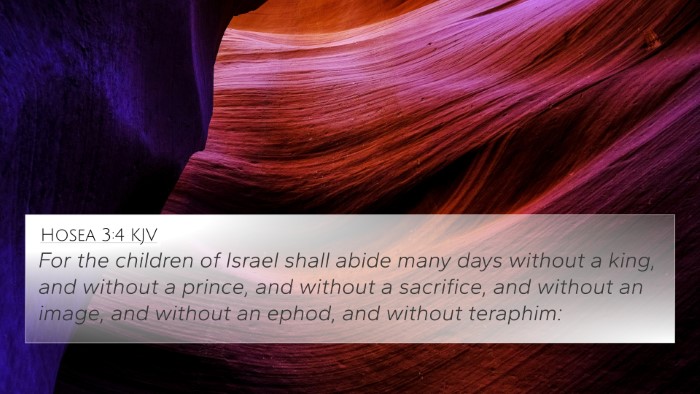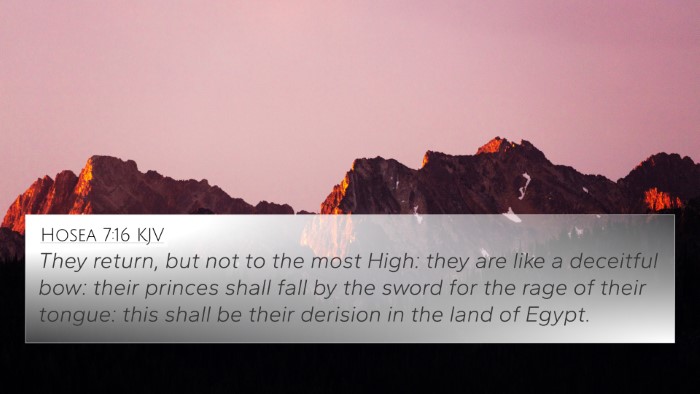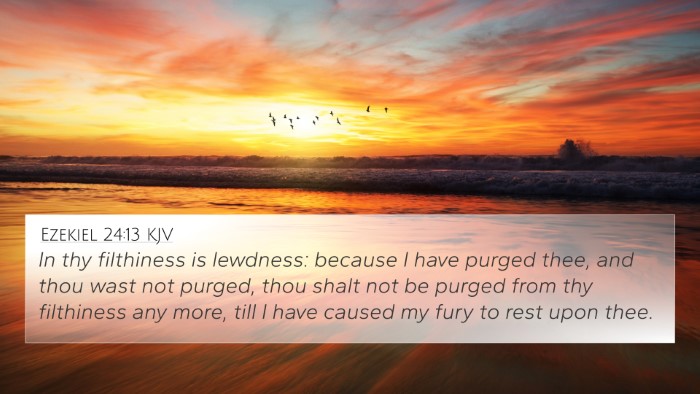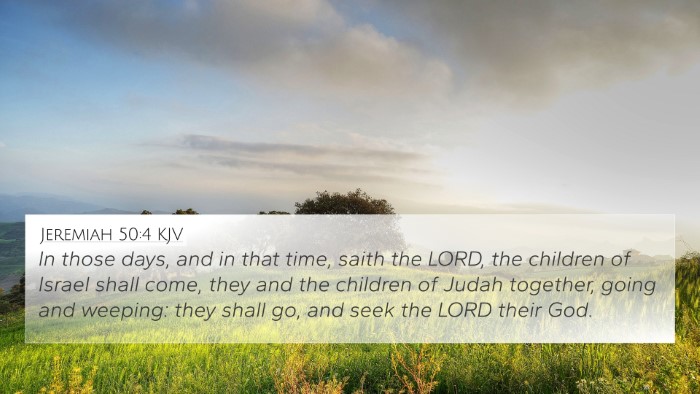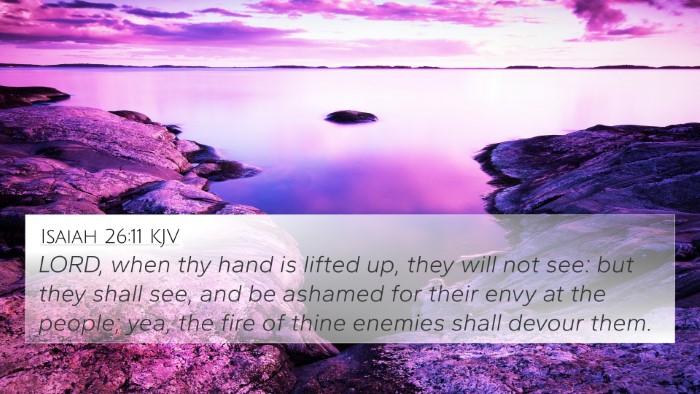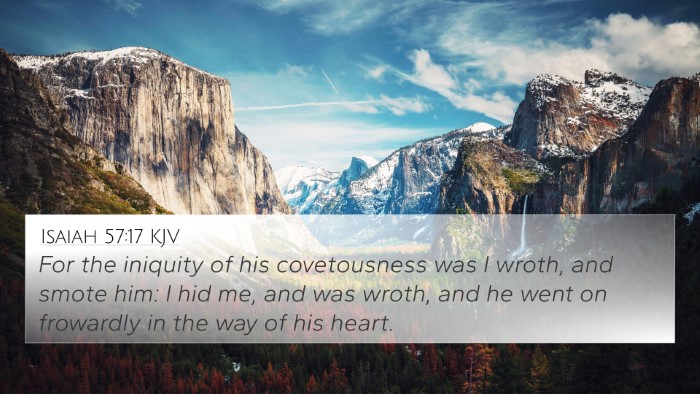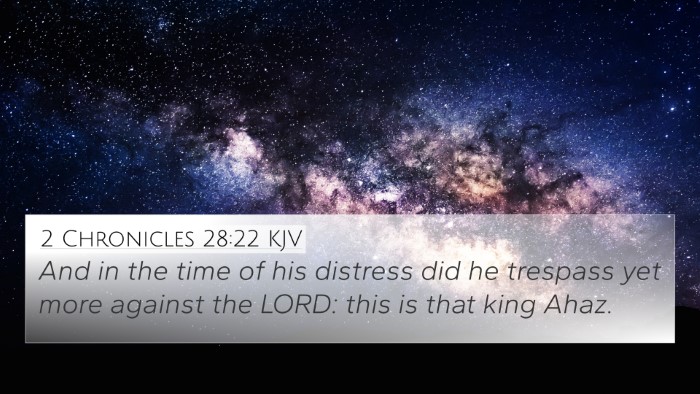Understanding Isaiah 9:13
Isaiah 9:13 states: "For the people turneth not unto him that smiteth them, neither do they seek the Lord of hosts."
This verse highlights a critical aspect of human behavior in relation to divine discipline and the need for repentance.
Summary of Insights from Public Domain Commentaries
Insights from Matthew Henry, Albert Barnes, and Adam Clarke provide a multifaceted understanding of this verse, emphasizing themes such as rebellion, lack of repentance, and divine justice.
1. The Nature of Rebellion
Matthew Henry elucidates that this passage reveals the stubbornness of the people in not turning back to God even after facing calamities. It emphasizes the tendency of human nature to ignore the warnings that come through trials.
2. Consequences of Ignoring Divine Correction
Albert Barnes notes that the verse underscores the futility of the people’s actions. Despite experiencing hardship due to their sins, they refuse to seek the very God who is capable of delivering them.
3. The Call for Seeking God
Adam Clarke points out that the failure to seek the Lord demonstrates a profound spiritual blindness. This lamentation serves as a call for recognition of one’s need for divine assistance and guidance.
Biblical Cross-References Related to Isaiah 9:13
- Jeremiah 2:19 - Highlights the self-destructive nature of turning away from God.
- Hosea 5:15 - God calls for His people to seek Him in their afflictions.
- Deuteronomy 28:15-68 - A passage detailing the consequences of disobedience and turning away from God.
- Luke 13:34 - Reflects Jesus’ lament over Jerusalem's refusal to turn to God.
- Proverbs 1:24-26 - Describes God’s response to those who ignore His calls.
- Isaiah 1:5-6 - Addresses the awareness of sin and the consequences of ignoring divine correction.
- Romans 2:4 - Discusses God’s kindness as a motive for repentance.
Connections Between Bible Verses
Isaiah 9:13 serves as a pivotal verse that links to various themes found in other scriptures, illustrating a profound need for repentance and the consequences of forsaking divine guidance. These connections facilitate a comprehensive understanding of biblical themes through:
- Cross-referencing Biblical texts: Linking themes of rebellion and repentance throughout the Old and New Testaments.
- Thematic Bible verse connections: Analyzing the theme of seeking God amidst tribulations across various writings.
- Bible verses that relate to each other: Finding inter-Biblical dialogue between the prophetic writings and the New Testament teachings.
Comparative Bible Verse Analysis
This analysis encourages the study of how prophetic messages, such as those in Isaiah, find resonance in the teachings of Jesus and the Apostles. Understanding these connections enriches one’s grasp of the biblical narrative and highlights the continuity of God's message across the scriptures.
Tools for Bible Cross-Referencing
Utilizing a Bible concordance or Bible cross-reference guide can aid in identifying these connections and themes effectively. It allows for:
- How to use Bible cross-references for deeper study.
- Engaging in cross-referencing Bible study methods to explore similar themes.
- Utilizing comprehensive Bible cross-reference materials for sermon preparation.
User Intent
When exploring questions such as "What verses are related to Isaiah 9:13?" or "How do [Isaiah 9:13] and [Hosea 5:15] connect?", these cross-references illuminate the profound relationships among scriptures and their collective teachings on repentance and divine discipline.
Conclusion
Isaiah 9:13 serves not only as a description of the people's response to God's chastisement but also as an invitation to recognize the need for repentance and to seek the Lord. The combined insights from notable commentaries and cross-referenced scriptures enrich our understanding and broaden the dialogue between various biblical texts. This inter-Biblical dialogue emphasizes God's longing for His people to turn back to Him, showcasing an everlasting truth that transcends time and context.




